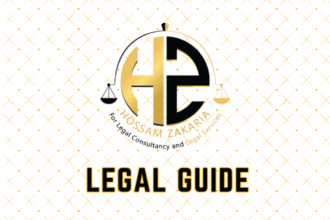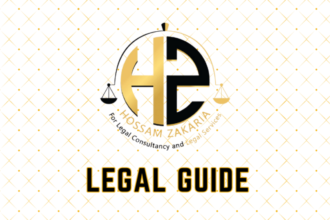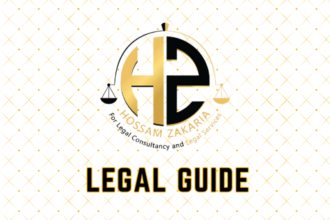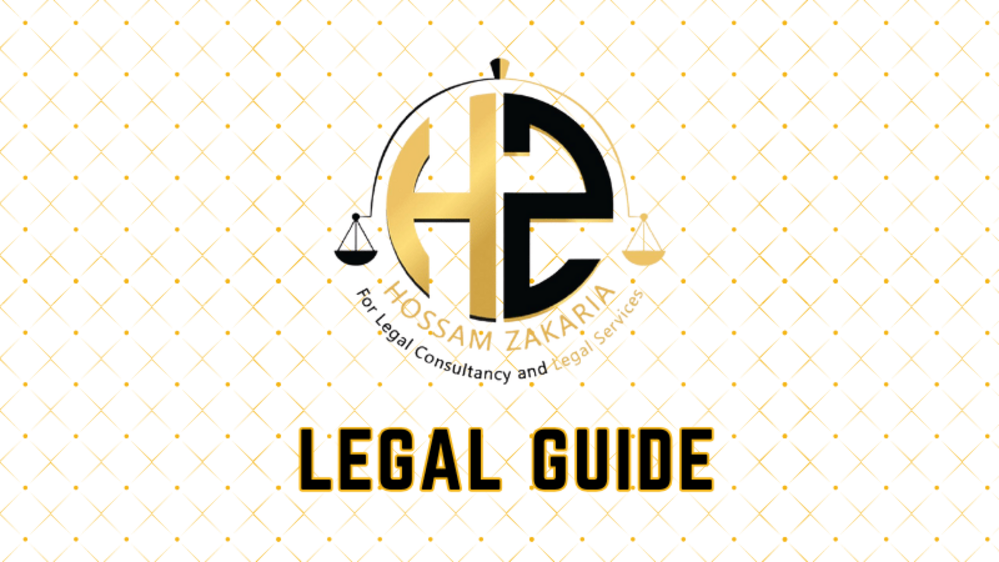Introduction
In the dynamic landscape of the United Arab Emirates (UAE), maintaining workplace safety through robust regulatory frameworks has become a critical priority for businesses. The Qatar Construction and Auditing Authority’s (QCAA) safety audits and regulatory inspections are integral to this goal, impacting enterprises across construction, manufacturing, healthcare, and various other sectors. With the UAE consistently updating its legal framework to match global best practices, regulatory compliance in occupational health and safety (OHS) is not only a statutory obligation but a cornerstone of risk management, operational resilience, and corporate reputation.
Recent updates to UAE legislation—notably Cabinet Resolution No. (33) of 2022 regarding the Regulation of Labor Relations and its Executive Regulations—reflect a stringent approach toward workplace safety. The intertwining of QCAA audits with these legislative changes underscores the escalating expectations placed on UAE businesses. As regulatory scrutiny intensifies in 2025 and beyond, understanding, anticipating, and efficiently navigating QCAA safety audits and regulatory inspections is vital for executives, HR professionals, and legal advisors alike.
This comprehensive guide presents a detailed legal analysis and practical consultancy insights, enabling UAE businesses to strengthen compliance, avoid costly penalties, and ensure workplace safety leadership in the region. Whether you manage a local SME or a multinational operation, this guide equips you with the knowledge and strategies to excel under the evolving OHS regulatory regime.
Table of Contents
- Understanding QCAA Safety Audits and Regulatory Oversight
- UAE Legal Framework Governing Occupational Health and Safety
- QCAA Safety Audit Structure and Inspection Process
- Comparing Old and New UAE OHS Laws: 2022 vs 2025
- How QCAA Audits Impact UAE Businesses: Risks, Liabilities, and Opportunities
- Strategies for Compliance and Best Practices
- Case Studies and Hypothetical Scenarios
- Risks and Consequences of Non-Compliance
- Conclusion and Forward-Looking Recommendations
Understanding QCAA Safety Audits and Regulatory Oversight
QCAA’s Role in the Emirates
The Qatar Construction and Auditing Authority (QCAA)—despite its Qatar-centric origin—plays an increasingly influential role in the UAE as collaborative Gulf region safety initiatives gain traction. In the UAE, QCAA-led safety audits operate in synergy with national authorities such as the Ministry of Human Resources and Emiratisation (MOHRE) and municipalities. Their joint mission: ensuring that business operations adhere to rigorous occupational health and safety standards, with a focus on both procedural and physical workplace safety measures.
QCAA audits typically involve a comprehensive review of workplace environments, examining company OHS practices, documentation, emergency preparedness, and conformance with relevant Emirati decrees and standards. Audits may be announced or unannounced, and are often triggered by regulatory cycles, incident reports, or random selection mechanisms as defined by Cabinet Resolution No. (33) of 2022 and its Executive Regulation (Ministerial Decree No. (46) of 2022).
Legal Authority and Scope
The legislative instruments mandating QCAA-style audits in the UAE include:
- Federal Decree-Law No. (33) of 2021 (Regulating Labor Relations)
- Cabinet Resolution No. (33) of 2022 (On OHS for Private Sector Establishments)
- Ministerial Resolution No. (46) of 2022 (On OHS Inspection Protocols)
- UAE Fire and Life Safety Code of Practice (2018, updated for 2023/2024)
The QCAA’s involvement, alongside UAE authorities, is rooted in these instruments, ensuring that businesses not only comply with national law, but also adopt best practices aligned with Gulf-wide safety strategies.
UAE Legal Framework Governing Occupational Health and Safety
Key Legislation
The backbone of OHS regulation in the UAE is formed by federal and local laws, harmonized with international standards:
- Federal Decree-Law No. (33) of 2021 — Governs labor relations and mandates a safe working environment for all employees.
- Cabinet Resolution No. (33) of 2022 — Specifies detailed OHS obligations for private businesses, with sector-specific provisions.
- Supporting Codes and Guidelines — Including the UAE Fire Code, Hazardous Materials Handbooks, and MOHRE’s annual inspection protocols.
The regulatory regime places a positive duty on employers to:
- Conduct periodic risk assessments
- Implement preventative and corrective measures as per Cabinet Resolution No. (33) of 2022
- Document OHS policies, procedures, and incident reports
- Train all staff, with heightened requirements for supervisors and technical personnel
Emerging Legal Trends (2022–2025)
Recent updates demonstrate a trend toward stricter enforcement, digitization of compliance documentation, and higher penalties for non-compliance. For example, Ministerial Resolution No. (46) of 2022 introduced digital audit trails and real-time reporting mechanisms, while amendments in 2024/2025 clarify the scope of liabilities for directors and HR managers who fail to implement adequate OHS controls.
QCAA Safety Audit Structure and Inspection Process
Stages of a Typical QCAA/Regulatory Safety Audit
The QCAA-driven audit process in the UAE involves several critical phases, each requiring meticulous preparation:
- Notification: While some audits are pre-announced, a growing share are conducted with little or no prior notice.
- Document Review: Inspectors evaluate OHS policies, incident logs, training records, and risk assessments to gauge compliance with Cabinet Resolution No. (33) of 2022.
- On-Site Inspection: The physical workspace is examined, including equipment safeguarding, hazardous substance storage, PPE use, and evacuation protocols.
- Employee Interviews: Select staff are questioned on safety procedures and incident response training, as required by Ministerial Resolution No. (46) of 2022.
- Reporting and Follow-Up: Findings are formally reported, with required corrective actions and compliance deadlines specified.
Visual Suggestion: For clarity, businesses should utilize a process flowchart diagram showing these audit phases, aiding internal OHS team briefings and board presentations.
Inspection Priorities in 2025
The Ministry of Human Resources has outlined priority inspection areas for 2025, influenced by incident reports and sector risk profiles. These include:
- Construction site safety management
- Hazardous chemicals handling and documentation
- Emergency preparedness and fire safety compliance
- Work-related injury/illness incident records
- Remote or hybrid work safety protocols
Inspections can also target compliance with new digital reporting requirements and sustainability-linked safety measures pursuant to UAE’s Net Zero 2050 initiatives.
Comparing Old and New UAE OHS Laws: 2022 vs 2025
Key Differences Presented in Table Format
| Provision | Pre-2022 Law | 2022–2025 Law/Regulation |
|---|---|---|
| OHS Policy Documentation | Basic written policy required; updates sporadic | Mandatory digital records; real-time incident tracking (Min. Resolution No. 46/2022) |
| Employee Training | Annual safety briefings; limited sector-specific guidance | Quarterly training mandatory; sector-specific modules; e-learning options |
| Audit Frequency | Periodic (annual or bi-annual); mostly pre-announced | Randomized (risk-based); increased share of unannounced audits |
| Penalties for Non-Compliance | Fines up to AED 10,000; occasional work suspension | Fines up to AED 75,000 per breach; potential closure, license suspension, criminal charges |
| Director/Manager Liability | Liability limited to gross negligence or willful misconduct | Expanded personal liability for process failures or repeated minor breaches |
| Reporting Requirements | Manual reporting to MOHRE or local municipality | Mandatory electronic submission within 24 hours of incidents |
Visual Suggestion: Present a penalty comparison chart for different sectors (e.g., Construction vs. Retail) to highlight varying levels of risk and enforcement intensity.
How QCAA Audits Impact UAE Businesses: Risks, Liabilities, and Opportunities
Legal and Operational Impacts
QCAA safety audits and regulatory inspections shape business realities in multiple ways:
- Legal Liability: Expanded obligations mean owners and managers are now personally liable for both active and passive failures in OHS controls. This is reflected in recent amendments to Ministerial Decree No. (46) of 2022.
- Operational Disruption: Failed audits can trigger immediate work stoppages, affecting project timelines and client relationships.
- Reputational Risk: Public reporting of serious violations is now common, influencing investor perceptions and employee morale.
- Strategic Opportunity: Proactive compliance can be leveraged as a marketing differentiator, building trust with clients demanding robust due diligence on safety performance.
Consultancy Insights: Practical Implications
Legal advisers are increasingly called upon to:
- Assist in electronic compliance documentation and audit preparation
- Represent clients in negotiations with authorities over adverse findings
- Develop corrective action plans that align with both national law and international standards (ISO 45001:2018)
- Deliver OHS training for board members to reinforce top-down compliance culture
Strategies for Compliance and Best Practices
Building an Effective Compliance Strategy
Drawing on the latest federal and ministerial regulations, best-practice compliance for UAE companies encompasses the following elements:
- Structured, periodic risk assessments for all operational sites
- Mandatory quarterly OHS and emergency drills
- Detailed, up-to-date documentation stored on approved digital systems
- Clear assignment of OHS responsibilities across management tiers
- Continuous monitoring and internal audits to anticipate regulatory inspections
Recommended Compliance Checklist (Visual Suggestion)
| Compliance Task | Status |
|---|---|
| Risk Assessment Updated (Last 3 Months) | ☐ |
| OHS Training Logs Filed Digitally | ☐ |
| PPE Inventory Documented | ☐ |
| Incident Reports Submitted Within 24 Hours | ☐ |
| Emergency Drill Conducted (This Quarter) | ☐ |
Companies are advised to adapt this checklist into their internal audit routines and digital dashboards.
Boardroom Best Practices
Legal consultants recommend embedding OHS compliance into boardroom agendas, supported by metrics and KPIs, such as incident rates and audit performance, to ensure ongoing executive accountability.
Case Studies and Hypothetical Scenarios
Case Study 1: Construction Sector
A UAE-based construction firm faced a random unannounced QCAA audit in January 2024. The inspection revealed gaps in chemical storage documentation and outdated employee training logs, violating provisions under Ministerial Resolution No. (46) of 2022. The company was fined AED 45,000 and ordered to suspend activities at the affected site for two weeks.
Legal Analysis: The penalty could have been avoided if the company had adopted real-time digital documentation and scheduled quarterly training sessions, as required by the latest regulations.
Case Study 2: Retail Chain (Hypothetical)
A major retail chain is due for a periodic audit. With the guidance of legal consultants, it implemented digital OHS dashboards, conducted monthly safety briefings, and maintained comprehensive incident logs. The inspection yielded zero non-conformities, leading to a positive compliance rating and business continuity.
Legal Insight: Proactive record-keeping and visible management involvement are proven safeguards against regulatory action and reputational damage.
Risks and Consequences of Non-Compliance
Penalties and Enforcement Actions
Under Cabinet Resolution No. (33) of 2022 and Ministerial Resolution No. (46) of 2022, businesses are exposed to the following risks in case of non-compliance:
- Financial Penalties: Fines can reach up to AED 75,000 per breach for safety infractions, with steeper penalties for repeat offences.
- Suspension or Revocation of License: Authorities may temporarily or permanently suspend operations for egregious or persistent failures.
- Criminal Liability: Directors/managers may face criminal prosecution, particularly in the event of fatalities or severe injuries resulting from OHS lapses.
- Reputational Harm: Public announcement of infringements is increasingly common, damaging a business’s standing in the market and the eyes of stakeholders.
Visual Suggestion: A summarized risk matrix chart mapping penalty severity against compliance readiness scores can help management teams understand exposure.
Mitigation and Remedial Action
Authorities typically allow for corrective action within a set timeframe, but repeated or serious breaches will result in cumulative penalties and possible closure orders. Prompt legal consultation and coordinated response are essential in minimizing damage and achieving compliance restoration.
Conclusion and Forward-Looking Recommendations
As the UAE accelerates its journey toward global best-in-class safety standards, QCAA safety audits and regulatory inspections will remain central to the business regulatory environment. The ongoing evolution of legal frameworks—most notably Cabinet Resolution No. (33) of 2022 and its accompanying regulations—signals an era of heightened scrutiny, personal accountability, and digital compliance expectations. Vigilant businesses will not only avoid penalties but gain reputational and operational advantages by adopting proactive, technology-driven safety management systems.
In light of these developments, UAE companies are strongly advised to:
- Undertake regular internal OHS audits, ideally mirroring QCAA frameworks
- Digitize all compliance documentation and incident reporting
- Integrate legal expertise into OHS strategy development and audit preparation
- Continuously educate management and staff on legal updates and industry best practices
Ultimately, those who invest in compliance today will be best positioned to thrive in the increasingly sophisticated regulatory environment that defines the UAE’s future. Proactive engagement with legal consultants—supported by disciplined processes and cutting-edge digital tools—positions organizations for enduring success and resilience.



